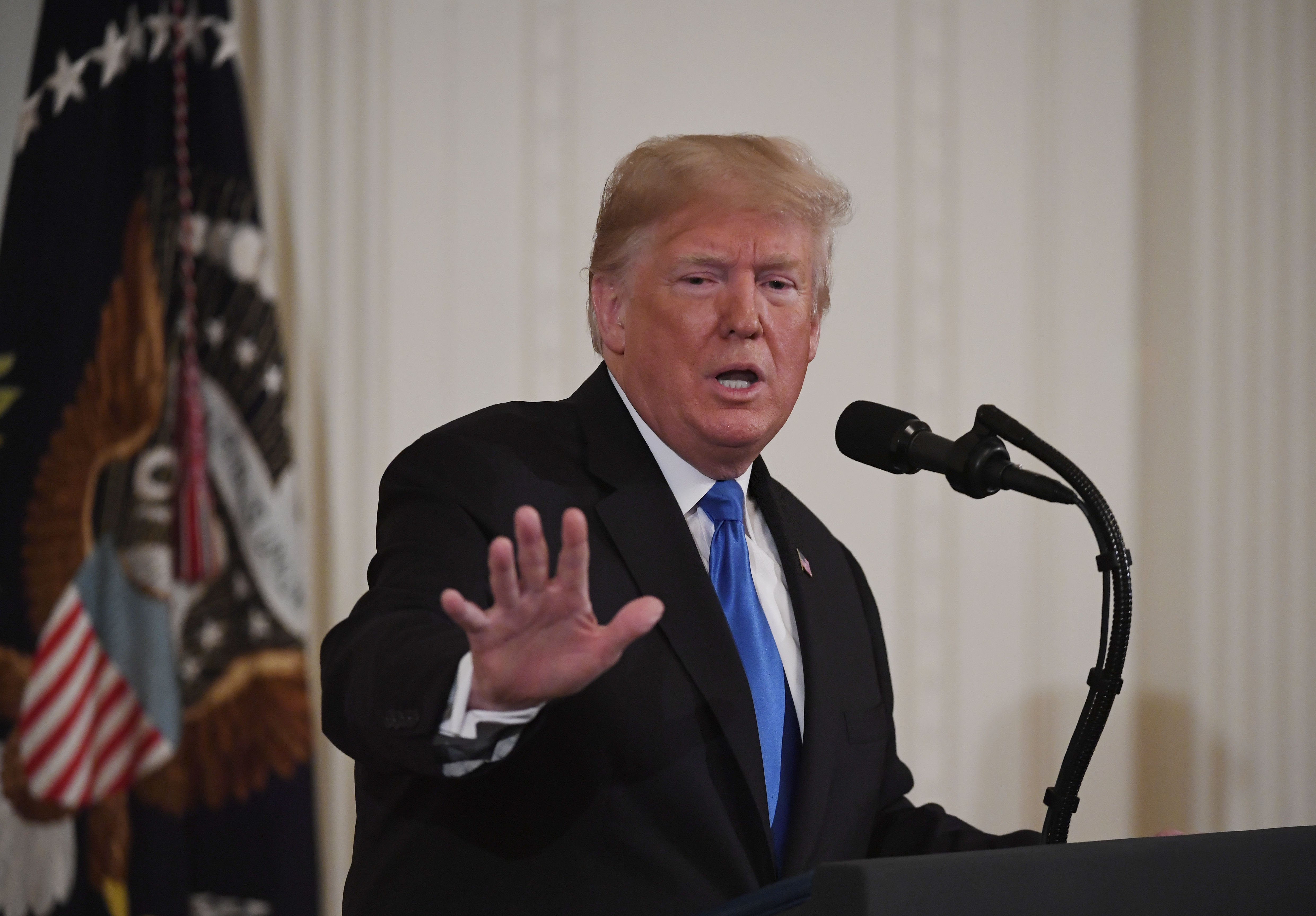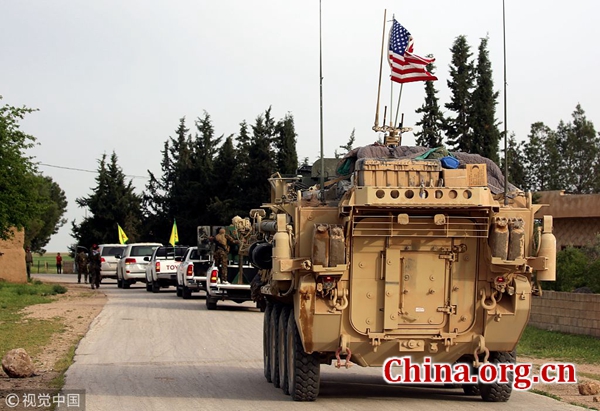Rationale behind Trump's withdrawal from Syria
- By Jin Liangxiang
 0 Comment(s)
0 Comment(s) Print
Print E-mail China.org.cn, December 22, 2018
E-mail China.org.cn, December 22, 2018

On December 19, U.S. President Donald Trump announced via his twitter account that he was withdrawing American troops from Syria.
Albeit a surprise for the international community, Trump's decision is by no way accidental, but stems from long-time consideration. The decision could be understood within the general context of America's withdrawal from the Middle East, which can be dated back to a decade ago.
The withdrawal might signify America's change of strategy in the region, but the U.S. still remains the single most important player there.
It can be defined as America's efforts to reduce or just not to increase its strategic resources in a volatile region, and in many ways it also means America's declining willingness getting deeply involved in being a regional policeman.
The process actually started in 2009, when President Barack Obama took office. Soon after being sworn in, he announced an America withdrawal from Iraq, which was accomplished over the following two years. Obama also decided to withdraw troops from Afghanistan, although it has never been implemented since the U.S. still keeps a large number of troops there.
Obama was also very prudent in getting involved militarily in the Syrian crisis. Despite stating at the very beginning that the U.S. would stand on the right side of history, he never seriously intervened in that country.
However, he did finally decide to organize a coalition against ISIS, and dispatched troops in the area east of the Euphrates, namely the Kurdish region. This decision was for both countering ISIS and balancing Russia's military presence in Syria.
Trump also proved reluctant to invest strategic resources in Syria and the Middle East in general. Upon his election, he stated on many occasions that the U.S. would withdraw from Syria. On March 30, he said openly that the country had wasted US$7 trillion in Middle East wars with nothing achieved.
However, he didn't immediately follow up on a withdrawal due to the strong opposition from the Department of Defense. Now, he's finally "grasped the nettle."
It is ironic that Donald Trump and Barack Obama share the same reluctance of investing many military resources in Syria though the two differ widely on many issues. That might signify the serious deficit of U.S. strategic resources and Americans' growing unwillingness to get involved in Middle East affairs. Of course, they adopted different approaches.
Barack Obama's withdrawal plan stemmed from relocation of U.S. strategic resources at a global level. Or to put it another way, Obama wanted to put more strategic resources into the Asia-Pacific region. Trump might also want to have more resources there, but he also wanted to have more economic resources for domestic economic development. That is what we know as his American First approach.
Despite reluctance, the U.S. cannot avoid a certain presence in Syria for some time. Obama used to set a red line for U.S. military intervention. He made clear in early 2013 that the U.S. would not intervene militarily unless Syrian government used chemical weapons on civilians.
And shortly after that, it was reported that civilians on the opposition side were attacked by chemical weapons. The blame was laid on Bashar Assad's government.
And shortly after Trump talked about U.S. withdrawal from Syria on March 30, 2018, it was also widely reported that the Assad government had used chemical weapons against Syrian people. It is reasonable to believe that chemical attacks had been too often used to keep U.S. involved.

Anyway, Trump has finally decided to withdraw from Syria. It is true that this decision might mean America's relative decline in general and the weakening of its will to get deeply involved in foreign causes. As a result, the regional players including Turkey and Iran and major external players like Russian will have much bigger roles to play in Syria's transition agenda, and in the Middle East at large.
However, the U.S. still has the largest number of military bases in the region from Bahrain to Djibouti, and the largest military personnel as well. And it is also likely that the U.S. will play its due role in Syrian issue by providing economic assistance and military advisory for YPD, the Kurdish forces long supported by the U.S. in countering ISIS.
It is also expected it will invest more resources in pushing forward its agendas in other Middle East issues, for instance, the Israel-Palestine peace process.
Dr. Jin Liangxiang is Senior Research Fellow with the Center for West Asian and African Studies, Shanghai Institutes for International Studies. For more information please visit:
http://www.china.org.cn/opinion/jinliangxiang.htm
Opinion articles reflect the views of their authors, not necessarily those of China.org.cn.






Go to Forum >>0 Comment(s)